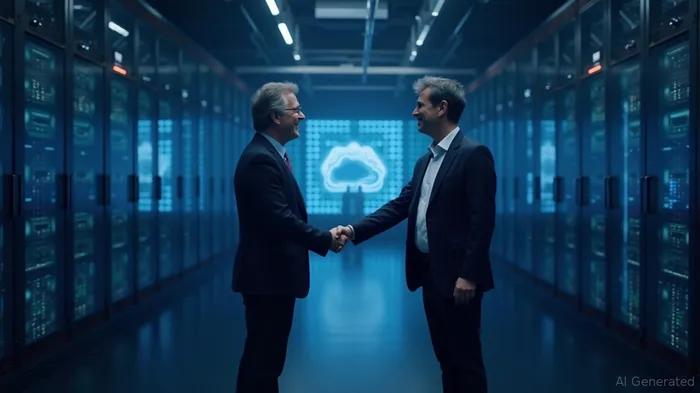OpenAI Bets on Google Cloud, Shifting AI Alliances Away from Microsoft
Alphabet's shares experienced an uplift following reports that OpenAI has selected GoogleGOOG-- Cloud to cater to its escalating computational needs. Sources suggest that the agreement between OpenAI and Google's cloud division under AlphabetGOOG-- was finalized in May, marking a notable shift in the competitive landscape of the artificial intelligence sector.
The deal underscores the massive pressures AI firms face to meet computing demands necessary for training and deploying advanced models. OpenAI's move signifies a strategic choice to diversify its sources for computing power, indicating a gradual shift away from its founding supporter, MicrosoftMSFT--. This choice reflects the evolving dynamic where partnerships for computational capacity can impact AI-driven business models significantly.
OpenAI's decision aligns with its expansion strategy to accommodate the growing demand for platforms like ChatGPT, which requires extensive computational infrastructure. Google’s cloud unit stands to gain by providing additional capacity to support OpenAI, enhancing its competitive stance while facing pressure from other tech giants eager to dominate the AI and cloud service spaces.
The partnership is a strategic maneuver for OpenAI, mitigating reliance on a singular platform, thus safeguarding against potential monopolistic dependencies. It's an arrangement that shows Google's ambitions to leverage its computing technologies, notably its Tensor Processing Units, to grow its cloud market share amidst fierce competition from other cloud service vendors.
While neither Google, OpenAI, nor Microsoft have commented on the specifics of the arrangement, the development highlights a significant collaboration that speaks to the broader industry shifts where AI and cloud computing intersect. As the market adapts to these new partnerships, firms are compelled to consider how best to navigate these collaborations that redefine traditional competitive boundaries.

Stay ahead with the latest US stock market happenings.
Latest Articles
Stay ahead of the market.
Get curated U.S. market news, insights and key dates delivered to your inbox.

Comments
No comments yet